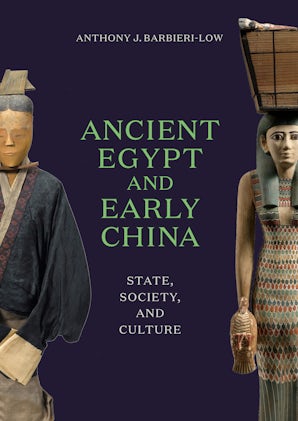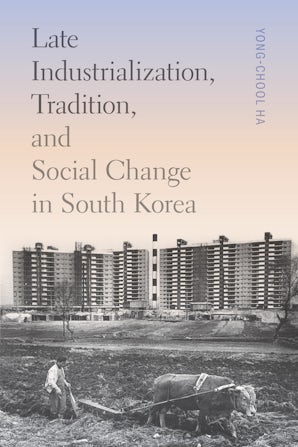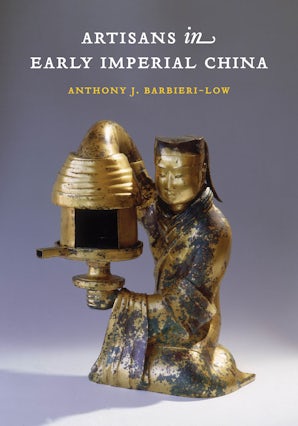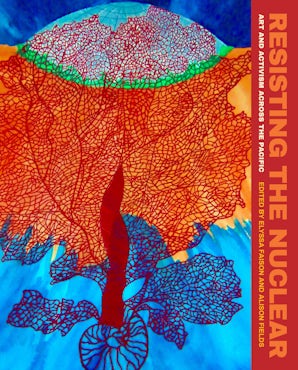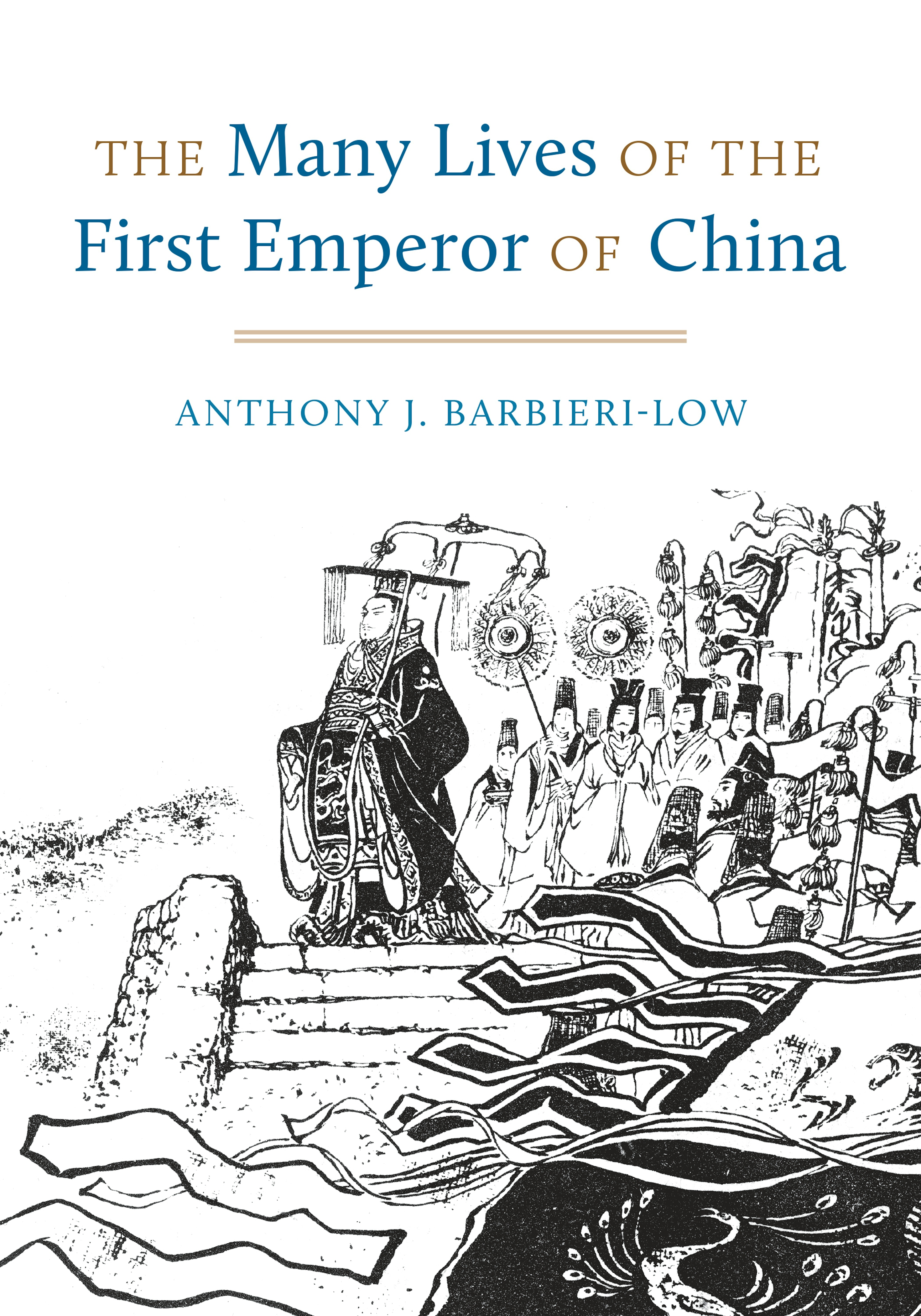
The Many Lives of the First Emperor of China
- PUBLISHED: August 2022
- SUBJECT LISTING: Asian Studies / China, History, Art History / Asian Art
- BIBLIOGRAPHIC INFORMATION: 360 Pages, 7 x 10 in, 18 color illus., 48 b&w illus., 2 maps
- ISBN: 9780295750224
- Publisher: University of Washington Press
Description
Tyrant or national hero? An interdisciplinary exploration of China's First Emperor
Ying Zheng, founder of the Qin empire, is recognized as a pivotal figure in world history, alongside other notable conquerors such as Alexander the Great, Genghis Khan, and Julius Caesar. His accomplishments include conquest of the warring states of ancient China, creation of an imperial system that endured for two millennia, and unification of Chinese culture through the promotion of a single writing system.
Only one biased historical account, written a century after his death in 210 BCE, narrates his biography. Recently, however, archaeologists have revealed the lavish pits associated with his tomb and documents that demonstrate how his dynasty functioned. Debates about the First Emperor have raged since shortly after his demise, making him an ideological slate upon which politicians, revolutionaries, poets, painters, archaeologists, and movie directors have written their own biases, fears, and fantasies.
This book is neither a standard biography nor a dynastic history. Rather, it looks historically at interpretations of the First Emperor in history, literature, archaeology, and popular culture as a way to understand the interpreters as much as the subject of their interpretation.
Authors & Contributors
Anthony J. Barbieri-Low is professor of Chinese history at the University of California, Santa Barbara. He is the author of Artisans in Early Imperial China and Ancient Egypt and Early China: State, Society, and Culture.
Reviews
"Anthony J. Barbieri-Low’s The Many Lives of the First Emperor of China is evidence that historical “meta-analysis” can produce a book as absorbing as a good narrative history...if you’ve ever stood agape at the material riches of the Terracotta Warriors or sunk deep into an armchair with a good work of historical fiction or biography, then this book is also for you."
- Asian Review of Books"Offers the most well-rounded depiction available in any language of the First Emperor’s personality, lifestyle, and historical era, as well as the subsequent narratives that for centuries shaped how his reign was understood."
- Los Angeles Review of Books"This monograph by Professor Barbieri-Low, like its predecessors, offers brilliant insights into the history of China, and into ways of doing history, by finding a useful perspective that was hitherto ignored."
- Journal of Chinese History"Author Barbieri-Low looks at the first emperor of China in a lively, well-written, deeply scholarly book that unpacks how we know what we know about this controversial despot, alternately celebrated and reviled through millennia of history."
- Journal of Anthropological Research"Barbieri-Low has created a colorful kaleidoscope from which the reader can learn about the First Emperor, his reign, his impact, and his “many lives” reconstructed by scholars. The book demonstrates the author’s wide-ranging research, erudite knowledge, professional acumen, and elegant writing skills. The entire monograph is stylishly written, poignantly fluent, soundly organized, and logically arranged. Barbieri-Low’s engaging language grabs the attention of the reader who may want to read the whole book in one sitting. For anyone who wants to know more about China’s first empire, its founder, its history, its culture, and its influence, this book is highly recommended."
- Chinese Historical Review"The Many Lives of the First Emperor of China is a clearly written, pioneering book that makes tremendous scholarly contributions to Chinese history and culture."
- Journal of Asian Studies"An innovative and virtuoso journey through thousands of years of representations of the first emperor of China."
- Journal of Anthropological Research"This volume reveals to us the immense imagination that can be generated and the great creativity of later generations provoked by Yíng Zhèng, a significant historical figure with an obscure biography. Given its innovative angle and erudition, it should be recommended to scholars of Qín studies and Chinese (religious) history."
- Religious Studies ReviewAdvance Praise
"This adventurous and important study brings the famous First Emperor of Qin to us through a polyphony of voices. We are given an entirely new way to read and understand the impact of this elusive figure, whose unification of China made "the greatest rupture with the past until the onslaught of modernization.""
- Dame Jessica Rawson, University of Oxford"A stimulating, innovative book on a major figure in world history. Barbieri plumbs archaeological and textual materials, including recently excavated manuscripts and inscriptions, for reliable information about the life and times of the First Emperor of Qin; and he juxtaposes his findings with the First Emperor's wildly divergent later representations in various media. His compelling analysis of their contexts and motivations invites reflections on both the nature and the present-day importance of history and historiography."
- Lothar von Falkenhausen, UCLA"This brilliant kaleidoscope of the ever-changing, semi-mythological image and rich cultural history of China’s First Emperor that ranges across millennia from ancient artifacts to contemporary film and literature."
- Martin Kern, Princeton University"A superbly researched and beautifully written study of the ways the First Emperor of China has been interpreted, represented, and appropriated throughout Chinese history. A tremendously exciting work."
- Michael Puett, Harvard University"Unlike any other book in our field. Relatively few scholars of early history have sought to consider their topics in light of later times and modern historiography. Rarer still are those who incorporate modern cultural phenomena such as film and video games into their research. These things are Barbieri-Low’s great contribution."
- Charles Sanft, University of Tennessee, Knoxville"Makes scholarship on remote ancient history relevant to our contemporary globalized world. The scope of this book is broad across space, time, and academic disciplines."
- Guolong Lai, University of Florida